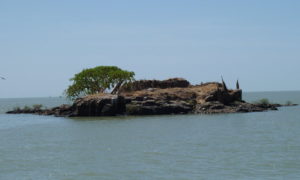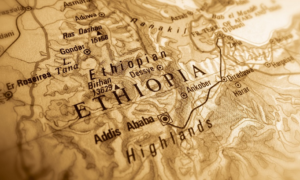article from: HTTP://SELAMTAMAGAZINE.COM/
Glamorous camping at the Lalibela Hudad ecolodge.

The well-trodden path from the holy city of Lalibela to the mountain plateau of the Hudad is a traveler’s treat. Serving as both the course for children on their daily trek to school and a busy highway of donkeys, goats and people on their way to market, this route provides a beautiful beginning to a truly authentic experience of life in Ethiopia’s highlands.
I’m joined on this path by two other adults and six children between ages 10 and 15, including my two children who were adopted from Ethiopia eight years ago. Though my family and I live in Australia, we take a biannual pilgrimage to Ethiopia so that my son and daughter may reconnect with their culture and their extended family.
I made this same trek with my children on our last visit, after scouring the Internet for places to spend our Christmas. The Lalibela Hudad — a 10-hectare ecolodge built in 2011 — provided the perfect place to celebrate the special time of year for our family.
Making this journey again, I am keenly aware of the danger of trying to recreate an experience (especially one I have talked so much about). But as we begin the arduous two- to three-hour walk up the mountain path, my anxiety quickly gives way; the kids run ahead to chatter and play with the local children while we adults meander behind, admiring the flora and fauna, the freshly harvested fields, and the local farming practices and customs.
The Hudad is set on a tabletop plateau 3,300 meters above sea level, offering 360-degree views of the magnificent hills and lush valleys below. Legend has it that the Hudad (“The Big Farm”) was named by King Lalibela, who built the area’s famed rock-hewn churches in the 13th century. Though the king lived in the town named after him below, the locals say he used this land around the Hudad to farm.

Visitors to the lodge stay in cone-shaped huts called tukuls, built by local artisans from stones hand-mined from the plateau itself. The local community has a significant role in the set-up, building and running of the ecoresort — from constructing new huts and cooking all of the meals to performing evening dancing-and-singing acts.
Upon arriving at our own tukuls, we find extra sweaters, hats, gloves and traditional clothing laid out on the beds — signaling the cold nights ahead. No running water or electricity exists here, but solar torches are provided and hot water is available by request. Warm water in beautiful earthenware pots awaits us outside our huts every morning, and hot water bottles warm our beds at night. Some have called this experience “glamping” (glamorous camping), but I just call it heaven. I haven’t slept so well in years.

We spend our days enjoying the beauty of our surroundings: the gelada baboons roaming freely through low shrubs, the rock hyrax scuttling away as they hear our approach, the massive wings of a lammergeyer casting shadows on the ground. It is enough to sit and just be here.
But the warm hospitality of our hosts and the local community imprints the most lasting impression. Every night, we gather around the campfire with Ethiopian men and women to eat together and sing. As per the local custom, the locals wash and massage the feet of their weary guests — making us laugh and the kids squeal with delight. Together, we feast on Ethiopian-style pepper steak and aromatic rice while the stars shine above us.
Here, life is pared back to the essentials: the majesty of the natural world, the aesthetic beauty of simple man-made structures, the joy of relationships and community. It is all here in abundance. We drink it up, our hearts and souls filling with life’s uncomplicated pleasures — more than enough to carry us down the mountain path that brought us to this magical place, and enough to last us till we can return once again.
Jenny Ouliaris is a general practitioner and family therapist. She is the mother of two Ethiopian children, whose boundless energy and joy for living make adventures like trips to the Lalibela Hudad so enjoyable.






